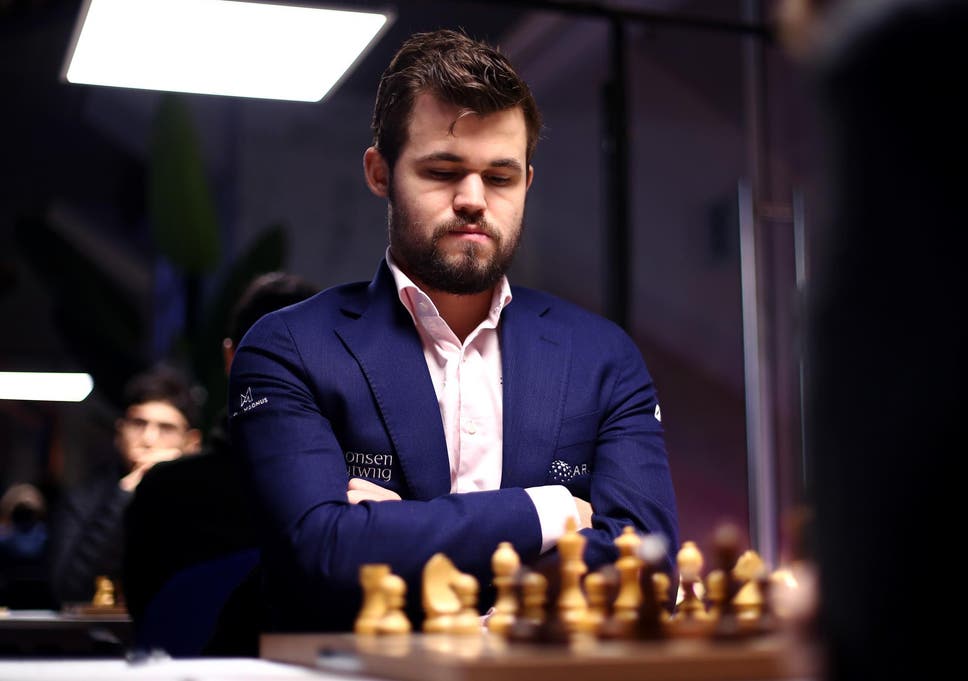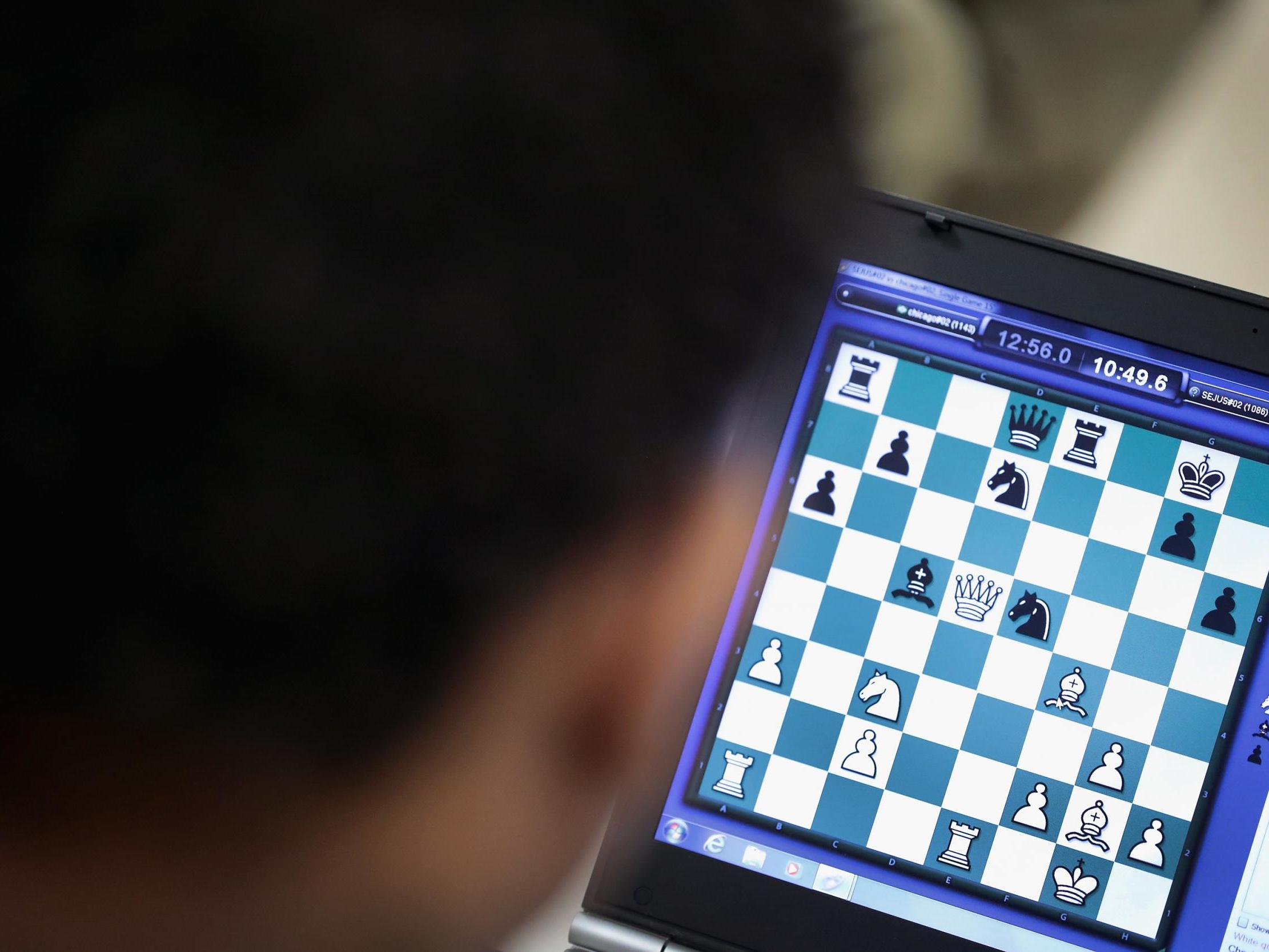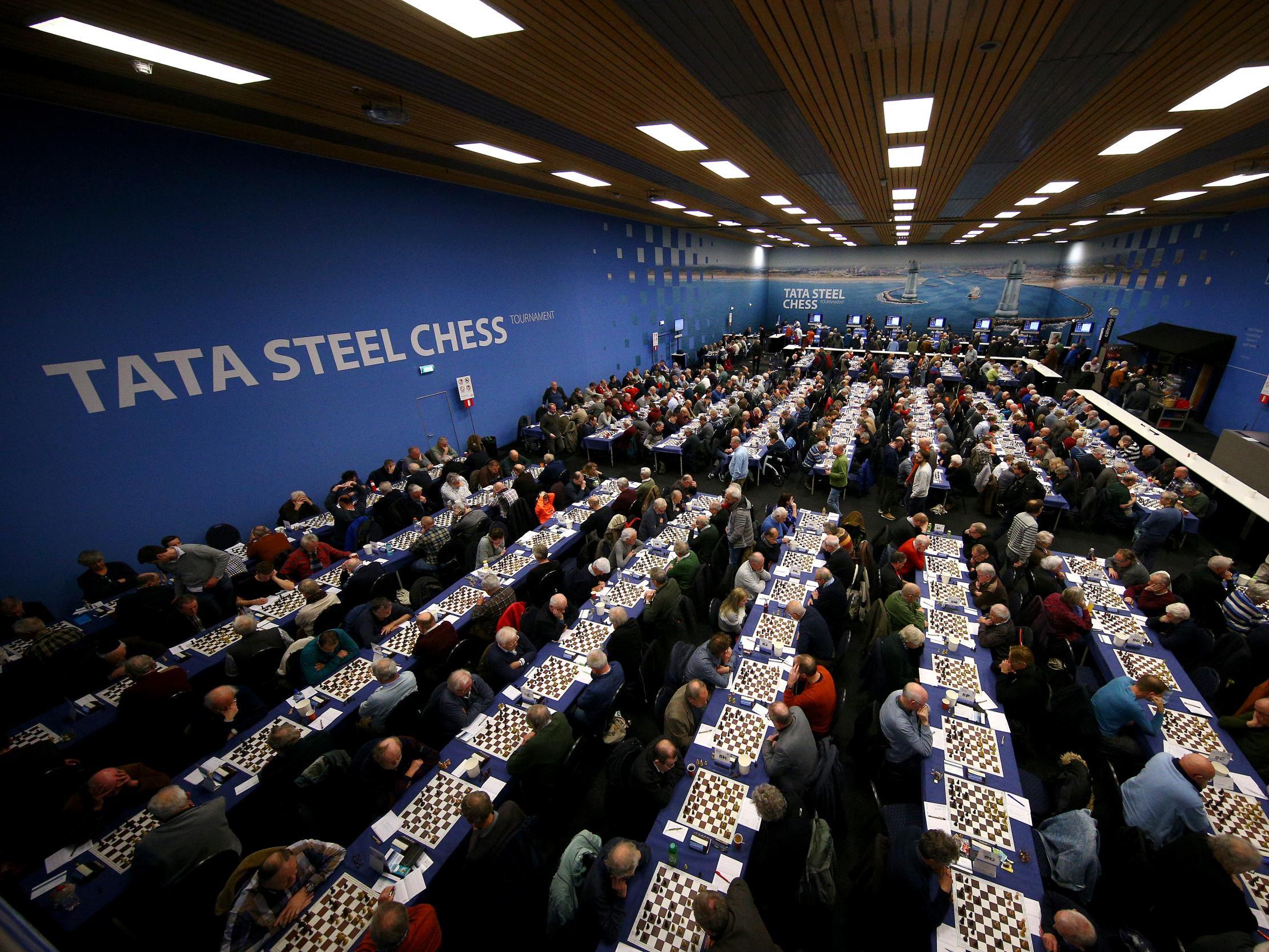
This weekend marked the beginning of a new era in chess.
On Saturday the Magnus Carlsen Invitational got underway – an eight-man tournament featuring the world’s best chess players. The format is nothing out of the ordinary: competitors will play four-game matches against each other in a round-robin, with the top four advancing to the knockout stages. Nor is there anything peculiar about the 15 minutes allotted for each game, even if it is considerably less than the three-hour time limit usually placed on a field of this nature.
But the $250,000 prize fund – $75,000 for the winner – with every game broadcast by chess24.com, commentary available in nine different languages and a roster of eight grandmasters, including the top five ranked players – of which Carlsen is No 1 – makes this an unprecedented venture in online chess.
Chess was one of the last sports to be brought to a halt due to coronavirus. The Candidates Tournament run by the International Chess Federation (FIDE) began as per usual on 16 March in Yekaterinburg, Russia, though without an audience and with players tested and only served meals in their hotel rooms. Despite the first case of Covid-19 in the area confirmed on the 17th, it took until the 26th for the tournament to be “paused”. Russie would close its borders on the 27th.
Suggestions to play the Candidates online were dismissed quickly. Naturally, a board game that dates back to the sixth century is bound by ancient tradition. But chess’s move online is a natural step forward in its relationship with computers.
It took until the 1980s for a dedicated computer to beat an accomplished chess player but the first major human scalp to the machines came in 1997 when the world champion Garry Kasparov was beaten by “Deep Blue”. But the presence of machines capable of working out the best moves in fractions of seconds changed human vs human duels.
Previously professional matches used to be 40 moves in two-and-a-half hours of thinking time for each competitor, followed by a break where they could get something to eat and assess the board. When computers became capable of providing in-play solutions the break was scrapped with all games played to a finish.
Matches are now logged on databases meaning players do not have to travel across the world with a suitcase full of notebooks. All the analysis they could possibly need, such as how opponents play when white (moving first) or black, can now be accessed at the click of a button. The scale of accessible data is extensive.
As it happens chess was one the first game to hit the internet. At its most primitive it required just two bytes of data. Now, billions of games are played online. Chess.com, the most frequently visited chess site, has over 20 million members.
Various iterations of the game thrive online, from shorter timed games such as Bullet, in which players have just one minute to complete their moves, to a mode called “Banter Blitz”, where players get three minutes for their moves but must commentate on the game as they go. Both formats have become wildly popular among the younger generation of chess players, with the most accomplished building their own audiences by streaming matches on Twitch.
While chess in person has become less of an older generation’s game with players now requiring fitness and endurance to maintain concentration for five hours – students have shown they can burn up to 6,000 calories a day while playing in a tournament – the online requirements of quick hand skills and providing second-screen entertainment sees it very much as a young person’s domain. Carlsen has lost Bullet and Banter Blitz match-ups against 16-year-old Alireza Firouzja in the last fortnight, in part, because of Firouzja’s dexterity.

Yet with such a diverse and thriving community, and the similarities with poker where both the offline fundamentals and essence of the game can be replicated perfectly, the money in chess is limited to “over the board” competition. And the reason for that is unlike poker, cheating online is incredibly hard to police.
Though there are programs able to monitor if a user is running software in the background to assist during matches, that can easily be skirted by opening up a different laptop. Even something as basic as having communication with a superior player cannot be stopped.
As such the Carlsen Invitational is incorporating new anti-corruption measures. Players will have audio and video feeds open at all times with feeds of their screens and themselves on throughout the match to allow the tournament director to see their every move. Though there are no doubts about the integrity of the eight players involved, FIDE is watching on with interest to see how effective these measures are. Ahead of a potential explosion online, they have also invested into developing algorithms that can cross-reference a player’s move to what a computer would suggest.
Previously, the world’s best would be online most for training purposes under different online personas. With all online matches catalogued these pseudonyms allowed them to test out openings or other new tactics without rivals being able to access or find their workings. Now they will have to spend more time as themselves.
The European Chess Union has moved their championships online, with other competitions looking to follow suit. Not only will this allow prestigious tournaments to continue during the coronavirus pandemic but it will also allow them to do so with drastically reduced operating costs. The “overheads” of such tournaments, ranging from the renting of halls to flights and accommodation for players, has been an ever-increasing expense and there is already talk some may look to stay online when things get back to normal.
There is a fear though that this will bring about the death of the psychological side of chess. Part of its charm is having opponents sit across a table from each other, guarded and vulnerable all at the same time, at times even showboating. Kasparov, for instance, would purposefully put his wristwatch back on when he thought the game was over as if to say “come on now, stop wasting my time and concede”.
Another casualty would be the camaraderie that thrives when the chess world gathers for these showpiece events. It may be a lonely pursuit, but the community spirit is strong.
The London Chess Classic, which is due to take place this December, is considering embracing both sides. Malcolm Pein, an international master and international director of the English Chess Federation has already looked into a variety of possibilities, including e-sports venues as a way of being more welcoming to its internet communities.

“Absolutely everything is on the table,” Pein tells The Independent on the prospect of both an online and offline classic. “You could have a small audience and the players on stage in these fantastic venues. Then you could have a separate competition where everyone is at home.”
Pein has been just as proactive in his personal role as founder of the Chess In Schools and Community charity – an initiative that aims to put chess in state primary schools by sending in tutors to spread the game. With schools now closed, the charity this weekend announced it will be offering one million free subscriptions to ChessKid Gold, a resource offering unlimited access to online lessons.
Across the board, private chess tutors have reported an increase in business with many chess clubs moving to online-only. Yet while the grassroots game has adapted, there is still a degree of trepidation at the top.
FIDE is renowned for dragging their feet when it comes to progression and they have been caught flat-footed by coronavirus. Their cash reserves are thought to be around €3m and with most of their money coming from fees levied on competitions such as the World Championships, the Chess Olympiad and the World Cup, they face an uncertain future. At present, there has been no news on whether they will shift their existing schedule online.
As they dawdle, Carlsen has taken the lead. And though the governing bodies will have a lot of ground to make up if matters do not stabilise, chess as a whole has the chance to seize the initiative and get a few moves ahead of the competitors.







